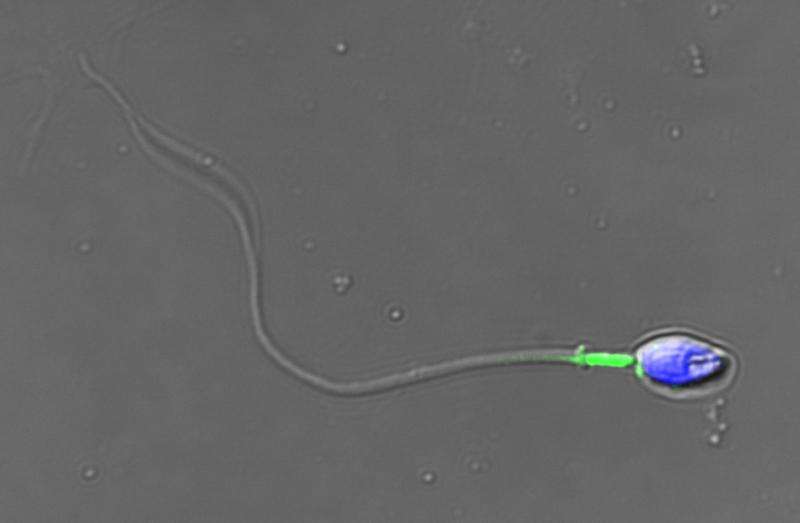Surprising signal to control male fertility

Signaling molecules of the Wnt family are ubiquitous in biology. From cnidaria to man, they are responsible for forming the basic shape of all organisms. Without Wnt, our body would not have a top or bottom, front or rear. In addition, Wnt controls numerous other development processes in the body. Overly active Wnt signaling, on the other hand, promotes carcinogenesis.
Wnt binds to receptors on the cell surface and fulfils its "classic" functions via a highly complex cascade of protein interactions in the cell's interior. At the end of this intracellular signaling pathway, specific genes in the nucleus are read (transcribed) - the known Wnt signal stimulates transcription.
"We've always asked ourselves whether Wnt can also control functions in the body without genes being transcribed and activated," says Christof Niehrs, who heads a research department at the DKFZ and also the Institute of Molecular Biology in Mainz, which is supported by the Boehringer Ingelheim Foundation.
Niehrs and co-workers had recently found the first indications that Wnt signaling - irrespective of its influence on transcription - protects proteins from degradation. Thus, cells can grow in size and prepare for cell division. However, the researchers conceded that reliable detection of a transcription-unrelated function of Wnt is extremely difficult, because the signaling molecule's influence on gene activity is too strong and manifold.
In pursuit of this question, scientists discovered male sperm cells as an ideal study object. Spermatozoa lack the basic biological conditions for transcription, i.e., no genes are transcribed in them. This means that if Wnt really had an effect on male sex cells, this would have to rely on a different mechanism.
Spematozoa mature during their transit in the epididymis and thus acquire their ability to move forward and to fertilize an egg. In mice, Stefan Koch and Sergio Acebron from Niehrs's group have now been able to identify one of the enigmatic factors behind this maturation process.
Wnt that is released by epididymal cells is responsible for the essential motility of spermatozoa as well as for crucial changes in the properties of proteins in these cells. While signaling inside the sperm cell proceeds along the usual, known Wnt control stations, it ultimately influences different target molecules. Male mice whose cells lack a newly discovered key activator of the classic Wnt signaling pathway are infertile and their spermatozoa are malformed and immotile.
"With our results, we were able to solve two problems at one time," says Niehrs. "First, we clearly demonstrated that classic Wnt signaling controls body functions without stimulating transcription. And we now know the crucial factor that coordinates the maturation program in spermatozoa."
Koch is particularly pleased about the potential - almost unexpected - medical relevance of his research results: "Wnt apparently has a substantial influence on male fertility. Agents that block or activate the Wnt signaling pathway are already being tested in clinical trials for other applications. They might also be effective in the treatment of fertility disorders or in contraception."
More information: Stefan Koch et al. Post-transcriptional Wnt Signaling Governs Epididymal Sperm Maturation, Cell (2015). DOI: 10.1016/j.cell.2015.10.029
Journal information: Cell
Provided by German Cancer Research Center




















